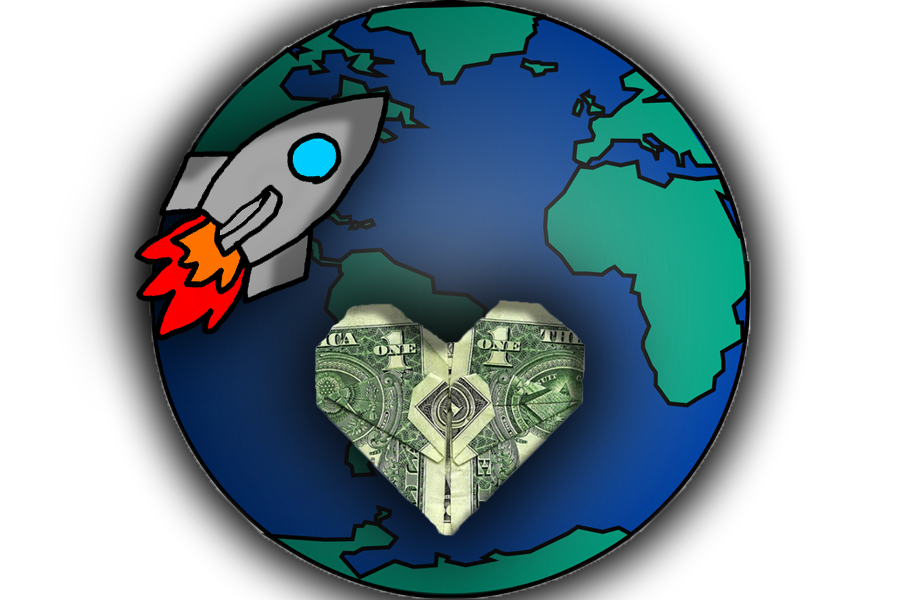Con: Raising the budget for NASA
NASA received $19 billion in funds in 2017, while there is plenty of financial unrest in the world. With a cut NASA budget, more charitable organizations could be aided in a mission to bring help for those in need.
November 15, 2018
According to a study conducted by UNICEF, 20,000 children die from living in poverty each day. People all over the world are starving to death, and while those of us who are financially well-off wonder when we will have our chance to send a man to Mars, the people in poverty that are dying from hunger are wondering where their next meal will come from.
It is unfair to funnel billions of dollars into a space project while people on the other side of the world, who have no way to provide for themselves or their families, are struggling in the dirt in desperate need of help. There are definitely more humanitarian things we can do with the bulk of the money the taxpayers fund NASA with, even if a few scientists are out of a job.
National Aeronautics and Space Administration reported a $19 billion fiscal year in 2017. There are roughly 550,000 homeless citizens in the United States. Using half of NASA’s budget in order to shelter and feed the homeless folks living stateside would totally eradicate homelessness in the U.S. altogether.
Feed A Billion, a non-profit company dedicated to serving one billion meals across the world to those who need it most by 2020, has the ability to serve 10 meals with only $1. If this company was equipped with just one quarter of NASA’s budget -$4.75 billion- Feed A Billion could theoretically serve 16 meals to each person living in poverty on Earth -roughly three billion people.
There are countless humanitarian efforts we can implement with even a fraction of the NASA budget. Charity for natural disaster victims, reconstruction, funding for the Red Cross Association, funding for local soup kitchens, homeless shelter and day care, the Peace Corps, the U.S. Fund for UNICEF, the World Food Programme and others. The list is endless.
“While we are spending a lot of money on science and space and whatnot, there are people who are starving and living in poverty that need our help, especially after a disaster occurs,” American Red Cross member Kimberly Townsend said. “There is a lot of good to be done but we need the proper funds to do it.”
The U.S. government has engaged itself in a new kind of space race, in which rather than facing off with a second world superpower, NASA is competing with private companies such as SpaceX that are advancing technologically at a quicker rate than NASA.
In order to get the upperhand in this race, the needs of the many have been ignored and the needs of the few have been made priority.
At this point in time, humans do not need to venture into space. Humans do, however, need food, water and shelter, and without these things, human life cannot be sustained.
“I really like the idea of exploring and going further into space, but there’s a lot of people in need right now,” Coppell High School junior Tyler Rose said. “We could definitely use the money we’re spending on the space program to feed people and give them homes. The people in need are more important than exploring planets in the solar system.”
While exploring the final frontier has its appeal to a star-gazing species, we have to put humanity ahead and provide for it before expanding into outer space. If we leave problems unsolved on Earth, how can we rationalize or justify settling on Mars?
The world we live in is a broken one, and escaping to outer-space is not a viable option. It is in humanity’s best interests to fix the planet it is native to before venturing further into the galaxy.










